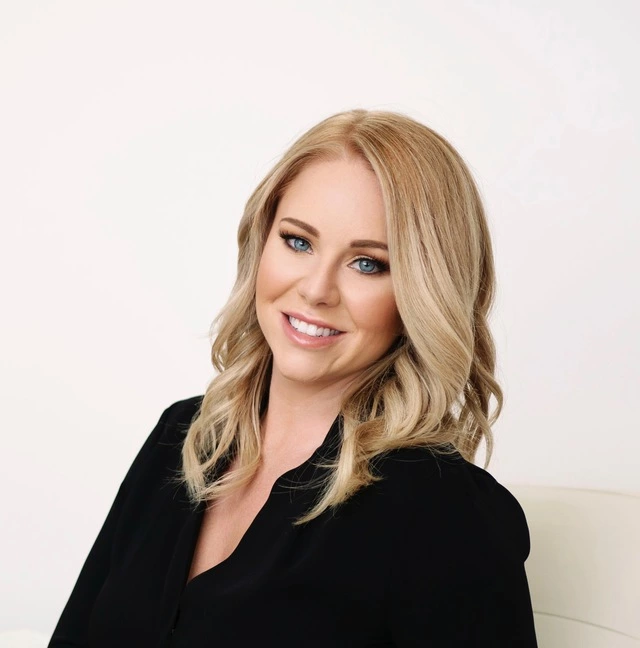Best Waterloo Real Estate Agents. Top Rated Reviews | Apr 2024
#1
#3
#4
#5
#7
#8
#9
#10
#11
#12
Top Ranked Real Estate Agent Teams
Hire the Right Real Estate Agent
If you want to avoid the hassle of reading a ton of reviews, sending many messages, and doing endless interviews - let us find the best real estate agent for your unique scenario. Fill out our short Agent Matching Quiz and we'll match you with a pre-screened, experienced, and top-rated agent who's performance is tracked. These agents don't work for us and this service is 100% free, meaning there is no cost or obligation to work with the agent we find you. It will save you hours of researching and interviewing agents.
I'm looking for a...
Waterloo Real Estate Agents: Frequently Asked Questions

The top ranked Realtor in Waterloo is Dave Roach.
Ranking the best agents is based on client reviews and ratings, not on amount of sales.
Dave has 130 reviews with an average rating of 4.96 stars.
Finding the right agent for you is all about knowing what you're looking for. A typical misconception is to assume that the same agents are right for everyone, and that the highest ranked Waterloo Realtor on Rate-My-Agent.com is the best choice for you. They may be. Or they may not be. It depends.
Are you looking for something very particular and you have ample time to make your move? Then you'll need a lot of time and attention from your agent, and it will be a long process. If that's the case, the top ranked agent may not be the best choice for you, as they will likely be quite busy with many clients and only have limited time to give you. They may not even take you on as a client. You may need an agent who has fewer clients who can dedicate more of their time to you.
Do you need to list your condo and travel to a different country right away? You may need someone who is experienced with that sort of thing so that you don't end up making unwanted trips back and forth. The top ranked agent in Waterloo may be able to help you. But a lower ranked agent with a team of people might be a better fit for your diverse set of needs.
Selling or leasing commercial property requires different experience than residential real estate.
Before you contact an agent, ask yourself: "What is most important to me?"
Here’s a list of criteria you can research on Rate-My-Agent.com:
- Personality can be seen in the agent's responses to their reviews.
- Responsiveness is scored out of 100%.
- Knowledgeability, professionalism, responsiveness, usefulness of website, value of service, reach & lead generation, and home preparation and staging advice all have overall averages for each agent with ratings.
- Recommend Ratio tells you what percentage of their past clients would recommend them.
- Property type can be seen in each review.
- The location of the transaction can be seen in each review as well.
The rankings on Rate-My-Agent.com are a good guideline when you're comparing the agents in aggregate. But not all agents are the same, and a lower ranked agent may indeed be the best choice for you.
There is a lot at stake and it's crucial to work with the right professionals. This is why you should read the profiles, look at the various scores, as well as the reviews of many agents before making your choice and contacting them. You can also take our agent matching quiz to skip this process. We have already analyzed all the data and tracked the performance of every agent we match to ensure they’re the right agent for you.
Regardless of if you want to do the work of selecting an agent yourself or have Rate-My-Agent.com take care of it for you, you'll get the right agent.
A Realtor is a contractor who helps you buy or sell real estate. They usually either represent the buyer or the seller, but in some special circumstances they can represent both. They are typically bound by contract to protect your interest within the confines of the law, and at a fundamental level, make sure the transaction goes smoothly. Of course, like with all skilled services, nothing is as simple as it seems, and if you were to look behind the scenes you would quickly discover that there is a tremendous difference between the work of an average Realtor and a great one.
Realtors will help you with making and responding to offers, and take care of all the back and forth communication with the other side. They will inform and advise you with negotiations. A great Realtor will also have a keen sense of the market they are serving, understand your needs, ask you good questions to solicit those needs, and represent you in the transaction looking out for your best interest. Great Realtors will do their best to help you get the outcome you want, not just close a deal and get their commission.
Let's get more specific...
A good buyer's Realtor will help you with your property search going above and beyond sending you to listing sites and taking you to viewings. They may have access to properties outside the MLS or know about properties before they get listed. Some will actually contact owners of properties that are not on the market and start discussions to see if they could be interested in selling. They will also walk you through the buying process, recommend reliable contractors for things like inspections, and alert you about details that only a professional would know. They may, for instance, warn you that an area you're thinking of buying in is going to be very noisy for a few years because of a planned construction project nearby. When deciding what to offer, they will show you the actual sale prices of comparable properties to help you make a fair and informed offer. A good buyer's agent will also go through your contract with a fine tooth comb, and although they cannot give you legal advice, they can definitely be a crucial pair of eyes to help you avoid catastrophic mistakes.
On the seller's side, a good seller's Realtor will put serious work into selling your property for top dollar, going far above and beyond just getting your property listed online. They will help you determine a good asking price, connect you with reliable contractors for repairs if needed, stage your home or get your home professionally staged, get great professional photos and videos taken, list your property, keep the listing updated, run open houses to attract buyers, and most importantly: Help advertise the listing.
Ultimately, a good buyer's agent helps you find and get the property you want and a good seller's agent brings in qualified buyers. And while you could theoretically do the job of an average Realtor if you had ample free time and some luck, it takes years of education, dedication and experience to do a great job as a Realtor and complete a transaction in a timely manner.
In short: If you are not a real estate professional, work with a good Realtor. And of course, avoid the bad ones. Read the reviews of Waterloo agents on Rate-My-Agent.com before contacting them, and use the free agent matching quiz to get started.
There are quite a number of costs, fees and commissions associated with a real estate transaction. Some are the responsibility of the buyer and some the seller. Here's a complete rundown of fees in terms of size and priority of consideration.
Buyer Responsibilities:
- Realtor fees: Generally speaking the seller is responsible for paying real estate agent fees. If the seller is not using a real estate agent, however, the buyer may be responsible for paying the fees for the buyer's agent. The amount and the specifics of the payment arrangement will be stated in the buying agent's contract. You should read this contract and pay attention to the details. In many contracts, for instance, there are clauses which make you liable for fees for a certain period of time, even if you were to stop working with that agent. For instance, if you enter into a contract with an agent but part ways, you may be required to pay buyer's agent fees on any property you purchase during the term of the contract. You may even be required to pay fees after the contract expires, if the property was introduced to you by the agent. This introduction can be as basic as an automatic email notification you received when the property first got listed. Read your contracts carefully to avoid unexpected fees and legal hassles. (This goes for everything you do in real estate: read your contracts carefully, and don't skip the fine print!)
- Property or land transfer tax: There are some important taxes to consider when buying property. One of these taxes is the property or land transfer tax, which is a tax you pay simply for purchasing property. This is a one time tax - so you don't have to keep paying it every year like the regular property taxes. The details of this tax depends on your location, and the amounts vary quite a bit. While you can read read our article on agent fees and commission standards to set expectations, do not rely on it for making your financial plans. It's best to talk to your Realtor to learn your exact rate for your specific location as well as personal circumstances as both impact your tax rate.
-
Property taxes: This is the actual yearly property tax. You will pay the prorated taxes on the property you purchase on a proportional basis - meaning, you'll pay taxes for the remainder of the tax year from the date of purchase. Your lawyer or notary will do the math and include it in a breakdown of the closing costs and fees. Upon closing, they will take care of the details and make sure the amounts are all settled accurately.
The specific amount will depend on your location, and ranges between 0.2% to 0.8% across Canada and 0.28% to 2.49% in the USA.[9] There is a vast legal landscape when it comes to property taxes, and many factors from your annual income to your veteran status can dramatically impact the actual rate imposed on you. It might be wise to talk to an accountant or a lawyer in order to figure out how you can pay the minimum property taxes possible, especially since this is not a one time expense and you'll have to pay taxes on your property every year. -
Property inspection: You may want this for peace of mind. You may also need it because your lender requires it. Expect a minimum cost of $300 to $500, but this number can quickly go up into the thousands if you need to get special inspection such as termite inspection, mold testing, asbestos testing, lead testing or even structural inspections such as foundation testing.[11][12]
The basic inspection will give you a good idea about the condition of the property, and list recommended or required repairs. The additional specialized inspections can be done based on recommendations from your initial inspection, or after Realtor guidance. If these find anything serious, they can have a significant impact on the price of the property and your buying decision. Ultimately, it is always a good idea to get an inspection before removing subjects. (Usually purchase contracts are written subject to certain conditions such as the buyer getting a mortgage or property passing an inspection. When these conditions are met to the satisfaction of the buyer, it is called subject removal.) - Property appraisal: While an inspection tells you about the condition of the property, an appraisal tells you the current fair market value of the property. It is likely that your lender will require an appraisal before you are approved for a mortgage. Costs in the range of $300 to $600.[13]
- Survey: Your lender may require you to have an updated survey for the property on top of the appraisal. Sometimes the seller assumes this responsibility. Otherwise, expect to pay $380 to $540 for the survey.[14] This one is also good to plan ahead and budget for, as surveys may need to be done by city officials and can take a while to schedule.
-
Mortgage loan insurance: This is a special type of insurance on your loan - not the property. The specific amount you pay and the details vary depending on the lender. In most cases, if you are putting less than 20% down as a downpayment, you will need to get this insurance, which can range between 0.5% to 1.5% of the loan amount per year.[15] There may also be other fees involved in getting it - such as an application fee. If you have a mortgage broker, they will walk you through this and help you find the best option. If you are going to need this insurance, it is advisable to work with a mortgage broker. It’s added on to your mortgage payment and the lender will remit it to the insurance provider.
A quick note of consideration: Many homebuyers see this as just another unnecessary expense and try to avoid it by putting more money down. This is a valid sentiment, but it really depends on your circumstances whether a mortgage insurance is right for you. On the surface, mortgage insurance allows you to buy a home sooner, because you don't need to save as much. But even if you have the cash at hand, mortgage insurance allows you to remain liquid and use your funds in other investments and further diversify your holdings. In other words, if you have something better to invest in, mortgage insurance can help you do that too. -
Property insurance: This is the actual insurance for the property, in case it gets damaged. All mortgage lenders require it, and even if you are buying the property without a mortgage, it is a good idea to get it. The cost will vary depending on your location, but the average cost of property insurance in Canada is $864 per year for a home valued at $250,000 and the average in the USA is $1,312 per year for a policy with $250,000 coverage.[16][17]
Home insurance is a rather complex subject, and not all coverages are equal. For instance, if you are covered for the replacement cost of a home that you purchased for $1,000,000, and the house burned down, you may only get back $300,000 in insurance because that's how much the insurance company would calculate it would take to rebuild (i.e. replace) your home.[18] Also, be sure to read the fine print (i.e. don't buy insurance for a property in a floodplain without getting flood insurance!) A great insurance broker will get you the insurance coverage you need at the best price possible. -
Legal fees and disbursements: The actual transaction gets filed with the land title registry by a lawyer or a notary. As a buyer, you will need to pay their legal fees, which ranges between $500-$1,200.[19] Lawyers are usually more expensive than notaries and can provide additional services including legal advice. If the price point is high, the paperwork for the real estate transaction is complicated, or the transaction has unusual clauses, it might make sense to work with a lawyer.
Your Realtor may refer you to a specific lawyer, and this is fine. Your real estate lawyer, just like your Realtor, is obligated to protect your rights within the confines of the law. Thus, they are valuable to you throughout the transaction and you should engage with them early in the process. - Renovations and repairs: Depending on what comes up in your inspection, you may need to assume responsibility for some repairs. While these are not part of the closing costs, they are an important expense to consider. The amount will vary drastically depending on your needs. Structural repairs such as getting a new roof, or drilling a well, or even new flooring cost significantly more than cosmetic fixes such painting a room.
- Utility payments including setup fees: You will have to pay utilities such as water, gas, sewage, garbage collection, etc. For some services, and of course, for the new services you'd like to add such as internet, cable TV, or home security, you may have to pay setup fees. It is good to keep these in mind as they can add up. (It's also a good idea to plan ahead so that you don't have service interruptions when you move.)
- Moving expenses: While this is not directly related to buying a property, it is a related expense that comes out of your pocket. Moving is not a trivial feat, both in terms of time and expenses. If you are moving within the city, expect to spend $260 to $655 per room.[20][21] If you are moving out of the city or province, expect to spend anywhere between $3000 to $9000, and potentially more if you need additional services such as temporary storage.[22] Moving can be a considerable expense, and services that appear cheaper on paper may end up costing you more due to lack of professionalism or hidden fees.
- Miscellaneous fees: You may need to pay other miscellaneous fees in the specific property you are buying. For instance, if you are buying heritage property, you will be required to verify that there is no underground oil tank on the property. If there is one, you will be responsible for removing it (costs $1000 to $5000).[23] A good Realtor will help you navigate such miscellaneous fees, and make sure they get included in the negotiation.
Seller Responsibilities:
- Real estate agent fees: The most typical Realtor fee structure for a real estate transaction is a percentage commission. This ranges anywhere between 1% to 10% of the sale price. The commission rate depends on the property, the brokerage, and the agent you are working with. The 'full analysis and explanation of Canadian real estate agent commissions' lists the average commission for each Province, the average for Canada, and major cities in Canada. The specific amount you pay will ultimately be determined by what you agree to with your agent.
-
Capital Gains Tax: If the property is your principal residence for every year you owned it, you do not have to pay capital gains tax on it when you sell.
If it is not your principal residence, you should consult your accountant for tax advice. You can learn more about capital gains tax and what to expect here. - Legal fees: You will need to pay legal fees to your lawyer or notary. The fees for an average home range from $500 - $1,200. Fees for more complex transactions or commercial properties can be many times higher. Legal fees are added to your total closing costs.
- Repairs: If you know certain repairs need to be done, and you want to sell your property for top dollar, or sell it in a timely manner, you may need to get these repairs taken care of before listing your place for sale. The buying process is so tightly regulated that it is highly unlikely for a problem to sneak by unnoticed. Moreover, if you get the repairs done yourself, you will likely pay less than what you would have lost from the asking price - inspectors don't shop around for the best price when quoting repairs.
- Renovations: While repairs are necessary, renovations are optional. Consult your Realtor to determine if renovations are a worthwhile investment before you list your home for sale.
- Advertising Fees: Your real estate agent is responsible for taking care of all the marketing and advertising for your property, including getting it on the MLS and other listing websites, taking pictures, putting up signs, conducting open houses, etc. If you are not working with an agent, you will likely have to do your own advertising, especially if you are trying to sell in a buyer's market. The typical cost of advertising a property ranges between 0.5% to 1% of the property price. When you're working with an agent, however, you typically don't pay for any of the advertising as your agent assumes responsibility for it. As a side note - when hiring an agent, a good question to ask is "How are you going to advertise my property?".
- Staging Costs: How your property shows is an important factor to consider. Again, your real estate agent will take care of the details, and they may even bring in a professional designer to stage your home at no additional cost to you. You may, however, need to buy new furniture or make some cosmetic upgrades to your home.
- Moving expenses: Same as the buyer. Important cost to consider.
There are many factors that influence how long it will take. You are the first variable. The market is the second. Once you have a property 'under contract', the terms of the contract will establish the closing date, which will be agreed upon by both parties. While some sources claim that first-time buyers across Canada take about 30 to 60 days to purchase a house, this is misleading.[1] On average - it takes about 4 ½ months to look for a house, and an additional 30 to 60 days to close on that house once you are under contract.[2] In other words, finding the property takes a lot longer than actually buying it. The same timeline roughly applies to selling a house. There are a lot of factors that impact the timeline, which you can read about here.
It is always a good idea to know the fair market value of your property before listing it. Unfortunately, there are a lot of misconceptions about real estate prices and many inexperienced people have unrealistic expectations. Having the wrong number in your mind can prevent you from selling your property in a timely manner, and cause you to miss out on a good, or even a great deal.
You have three options when it comes to finding the fair market value of your property:
- Go get an appraisal from a professional. There are professionals who do this for a living, and they will give you an unbiased and objective answer. Costs will range between $300 to $600.[13] If you go this route, be sure to work with someone local who understands your market, and also someone who is licensed who regularly works with lenders in appraising properties.
-
Get Realtors to give you a figure. All experienced listing agents will offer a more comprehensive comparable market analysis to establish your property's estimated value for no cost. It is a good idea to get 3 CMA’s and compare them.
One important note about working with Realtors to get a CMA: Realtors use CMA’s to attract clients and they’ll always want to present the results to you in person. This is a sales presentation where they attempt to get you to sign a contract for them to list your place for sale. Because they’re trying to win your business, some will tell you what you want to hear (your place is worth more than what the other agent said). That’s why it’s important to check that they provided enough comparable properties that are actually comparable. Don't just accept the CMA because a professional told it to you, ask them to show their work and explain their reasoning, or even ask for the raw data. - Do it yourself. Using a variety of metrics such as the tax valuation of your property, listing prices as well as closing prices of comparable properties, you can do a valuation yourself. Of course, you have to not only get these numbers, but also have a fairly good understanding of how the market works and how supply/demand relationships determine price. If for some reason you want to go down this route, read this article.
Unless you have all the funds required for your purchase, you should definitely get a mortgage pre-approval before contacting an agent in Waterloo. A pre-approval is a written commitment from a lender to offer you a particular rate for a given mortgage. This helps you make sure that properties you're looking at are within your price range and enables you to move fast when you want to make an offer.
If you're not already pre-approved, top agents will likely ask you to get a pre-approval before they take you on as a client. This is why it is a good idea to get it out of the way. And since you are not obligated to purchase the mortgage from any lender that pre-approved you, there is no downside to getting one.
You can start the pre-approval process by going directly to a lender, or you can apply with the help of a mortgage broker - which you can also find on our Waterloo mortgage broker rankings. By working with a broker, you can get multiple pre-approvals and look for the best rate without having to contact different lenders one by one. Just like working with Realtors, your results working with a mortgage broker will depend on who you pick. Working with the right broker can have a tremendous impact, whereas working with the wrong broker can waste your time and even hurt your finances.
It is important to note that mortgage brokers do this for a living and charge a fee to arrange your mortgage or for mortgage advice. This might be a percentage of the mortgage amount or a simple flat fee. It may come out of your pocket or be paid by the lender. This really depends on the broker and how their business is set up, so when picking one it is important to ask about their fees and how their commissions work. Keep in mind that real estate is a heavily regulated industry, and in some provinces and states real estate agents cannot partner with or refer you to a mortgage broker or vice versa.
Ultimately, shopping around for mortgages and working with a good mortgage broker does make a difference, especially if you are looking for properties in the higher price brackets. And if you're in any competitive market, getting your pre-approval taken care of is not really optional.
If you want to understand whether it's a good time to buy or not in Waterloo, or in a particular neighbourhood in Waterloo, you need to consider the supply of listed properties relative to the demand of qualified buyers. You can get a sense about the supply by asking your Realtor, who can give you historical data on the number of properties listed and whether the inventory is growing or shrinking. And you can get a sense of the demand by looking at how many properties sold, and how quickly they sold, compared to historical averages. This type of data is not always publicly available in real-time. Local real estate associations will publish monthly stats of transactions performed by Realtors. This does not include private transactions that happen without a Realtor.
Ask your Realtor for market data for at least the last six months to get a sense for the current market and where it might be going. If the inventory is increasing and sellers are competing for few buyers, it's likely a buyer's market. If properties remain listed for a long time, and prices get reduced, it is definitely a buyer's market. Conversely, if the inventory is low and is getting even lower, or if properties get sold right away amidst bidding wars, it's a seller's market.
Beyond this basic supply/demand analysis, another important dimension to consider is employment, which can give you a little bit of foresight into where the market may be going. If new jobs get created in an area and people start moving in, demand will likely increase, many people will compete for the available properties, turning it into a seller's market. Similarly, if unemployment in an area rises and people have to downgrade or move out to get jobs, inventory will increase creating a buyer's market. You can read more about timing the housing market.
All that being said, whether it's a good time or not is completely up to you. Ultimately, it is impossible to predict where the market is going and definitively say that buying now is going to be better or worse than buying in the future. This is why, as much as we recommend that you get informed about the condition of the market, we also suggest that you follow your heart. If you think it's a good time to buy, it is a good time to buy!
The Best Real Estate Companies in Waterloo have been ranked based on ratings of their agents. People may also refer to real estate companies as brokerages, agencies, or firms.
Top Realtor Reviews of the Best Real Estate Agents in Waterloo
Find the best Realtors in Waterloo, Ontario and area. Buyer's agents and seller's agents for every transaction type can be reviewed on Rate-My-Agent.com. If you want help selecting the right agent to help you buy your next place or list your property for sale, take 30 seconds to fill out our easy quiz and we'll recommend the right agent for your situation. There is no obligation to work with the recommended agent and there's no cost to you.
All Realtors in Waterloo are members of the Kitchener-Waterloo Association of REALTORS (KWAR). To file a formal complaint against an agent or brokerage, follow the process at the Real Estate Council of Ontario (RECO).
Top Waterloo neighbourhoods with rated agents include: Upper Beachwood, Westvale, Laurelwood, Lakeshore North, Eastbridge.
Nearby cities: Kitchener, Cambridge, Elmira, Ayr, New Hamburg, Baden, Drumbo.
Annual Top Rankings in Waterloo
Top 10 Real Estate Agents in 2022Last Updated: April 25, 2024































